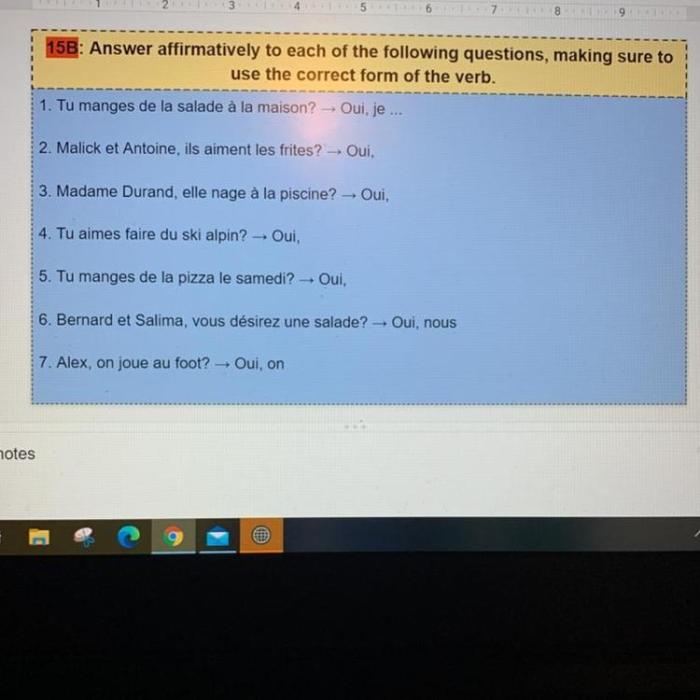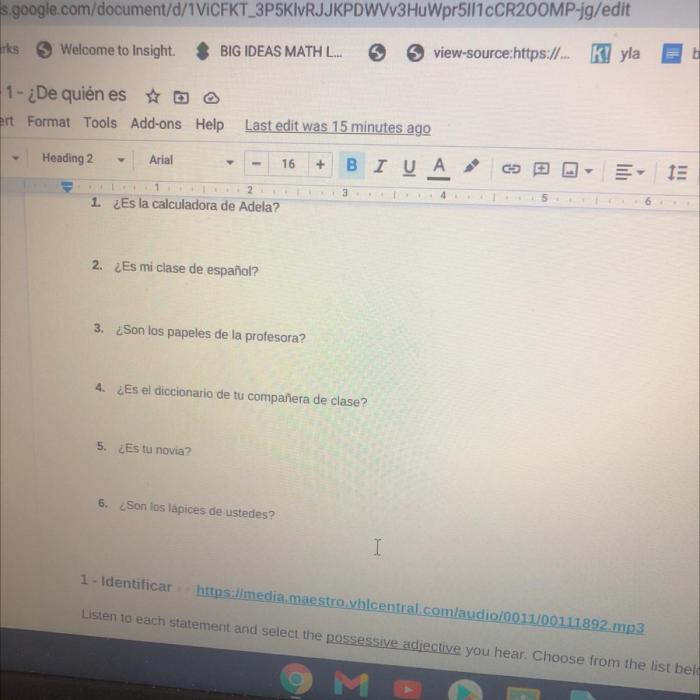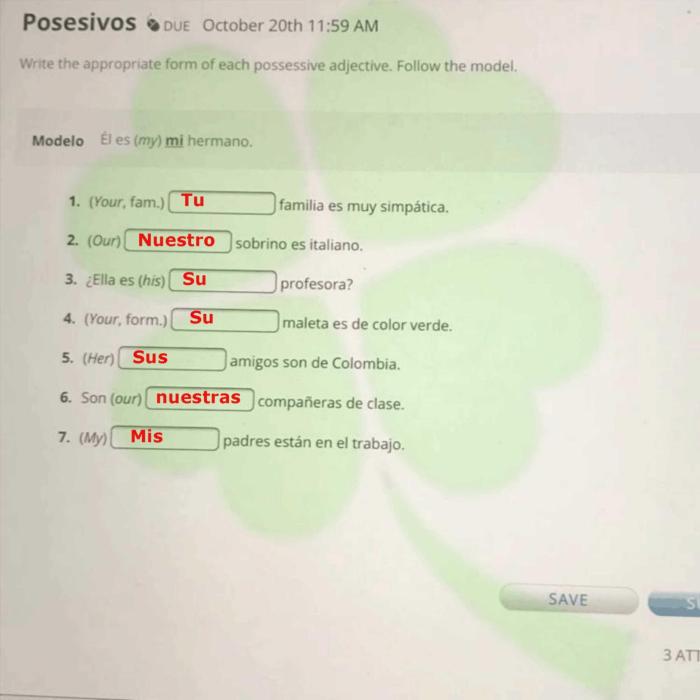In the realm of grammar, answer each question affirmatively using the correct possessive adjective. stands as a cornerstone, enabling us to convey ownership and belonging with precision. This guide delves into the intricacies of possessive adjectives, exploring their nature, usage, and significance in crafting effective affirmative responses.
As we embark on this linguistic journey, we will uncover the rules governing possessive adjectives, delve into the art of crafting affirmative responses, and witness the transformative power of these grammatical tools in shaping clear and concise communication.
Possessive Adjectives

Possessive adjectives are used to indicate ownership or possession of a noun. They are placed before the noun they modify and show who or what owns or possesses something.
Common possessive adjectives include:
- my
- your
- his
- her
- its
- our
- your
- their
When using possessive adjectives, it is important to follow the following rules:
- The possessive adjective must agree in number with the noun it modifies. For example, you would use “my” with a singular noun and “our” with a plural noun.
- The possessive adjective must be placed before the noun it modifies. For example, you would say “my book” and not “book my”.
Affirmative Responses
Affirmative responses are used to express agreement or confirmation. They are typically one-word responses such as “yes”, “okay”, or “sure”.
Examples of affirmative responses include:
- Yes
- Okay
- Sure
- Of course
- Absolutely
Affirmative responses are important because they help to maintain communication and build rapport. They show that you are listening to what the other person is saying and that you agree with them.
Using Possessive Adjectives in Affirmative Responses

Possessive adjectives can be used in affirmative responses to indicate ownership or possession of a noun.
For example, you could respond to the question “Is this your book?” with the affirmative response “Yes, this is my book.”
Using possessive adjectives in affirmative responses can help to clarify ownership and avoid confusion.
Benefits of using possessive adjectives in affirmative responses include:
- Clarity: Possessive adjectives help to make it clear who or what owns or possesses something.
- Precision: Possessive adjectives can be used to specify the exact ownership of something.
- Emphasize: Possessive adjectives can be used to emphasize the ownership of something.
HTML Table Structure

An HTML table is a way to organize data into rows and columns. It is used to present data in a clear and concise way.
To create an HTML table, you use the
| tag.
For example, the following code creates a table with 4 columns and 3 rows: “`html
“` Example Sentences
FAQ Explained: Answer Each Question Affirmatively Using The Correct Possessive Adjective.What are possessive adjectives? Possessive adjectives are words that indicate ownership or belonging. They are used to show that something belongs to a particular person, place, or thing. How do I use possessive adjectives in affirmative responses? To use possessive adjectives in affirmative responses, simply place the possessive adjective before the noun that you are referring to. For example, you could say “This is my book” or “That is her car.” What are the benefits of using possessive adjectives in affirmative responses? Using possessive adjectives in affirmative responses can help to make your communication more clear and concise. It can also help to avoid confusion about who or what something belongs to. |